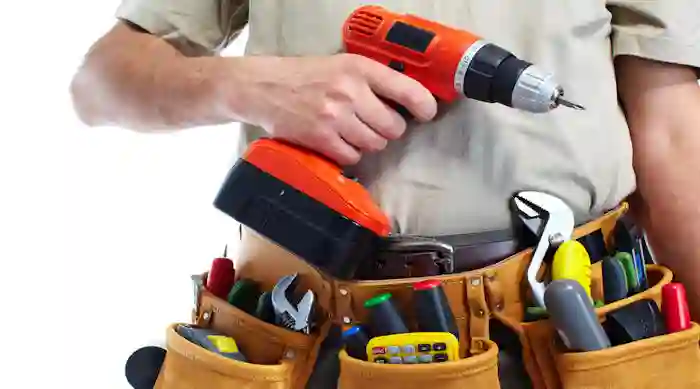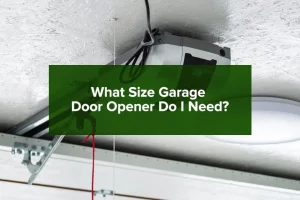Life is unpredictable, and sometimes emergencies happen when we least expect them, even within the safety of our homes. Whether it’s a burst pipe, a power outage, or a sudden leak, these unexpected incidents can be stressful and disruptive. That’s where emergency handyman services come to the rescue. In this article, we’ll explore the importance of emergency handyman services, the types of emergencies they can address, and what you should do when disaster strikes in your home.
The Need for Emergency Handyman Services
Emergencies can take many forms, and they often require immediate attention to prevent further damage or safety hazards. Here’s why emergency handyman services are crucial:
- Timely Response: Emergency handyman services offer rapid response to address urgent issues, reducing the risk of further damage and inconvenience.
- 24/7 Availability: Many emergency handyman services operate around the clock, ensuring that help is available whenever you need it, even in the middle of the night or on weekends.
- Professional Expertise: Emergency handymen are trained professionals with the skills and experience to handle a wide range of urgent home repairs and maintenance tasks.
- Safety First: These professionals prioritize safety, which is essential when dealing with emergencies that may involve electrical, plumbing, or structural issues.
- Peace of Mind: Knowing that you have a reliable and skilled resource to turn to during emergencies provides peace of mind for homeowners.
Types of Emergencies Handled by Emergency Handyman Services
Emergency handyman services are equipped to address various types of home emergencies. Some common emergencies include:
Plumbing Issues
- Burst pipes or water leaks.
- Clogged drains and sewage backups.
- Non-functioning toilets or faucets.
- Hot water heater failures.
Electrical Problems
- Power outages or electrical failures.
- Faulty outlets, switches, or circuit breakers.
- Sparks, smoke, or burning odors from electrical systems.
- Damaged wiring or exposed electrical components.
Heating and Cooling Emergencies
- Heating system failures during cold weather.
- Air conditioning breakdowns during hot weather.
- Gas leaks or carbon monoxide concerns.
Roofing and Structural Issues
- Roof leaks during heavy rain or storms.
- Fallen branches or trees causing damage.
- Structural damage from natural disasters or accidents.
Lock and Security Issues
- Lockouts or lost keys.
- Broken locks or doors.
- Security system malfunctions.
Water Damage
- Flooding or water intrusion from heavy rains or plumbing issues.
- Mold growth due to dampness or water leaks.
What to Do When Disaster Strikes
When you’re faced with a home emergency, it’s important to take immediate action to minimize damage and ensure your safety. Here’s what to do when disaster strikes:
- Stay Calm: The first step is to remain calm and composed. Panic can lead to poor decision-making in emergency situations.
- Ensure Safety: Prioritize your safety and the safety of your family members. If there’s a risk of fire, gas leak, or electrical hazard, evacuate the premises immediately and call 911.
- Turn Off Utilities: If it’s safe to do so, turn off utilities such as gas, electricity, and water to prevent further damage or safety hazards.
- Call Emergency Services: For emergencies that pose immediate risks to life or property, call 911 or your local emergency services.
- Contact Emergency Handyman Services: Once you’ve ensured safety and mitigated immediate risks, contact emergency handyman services. They can provide guidance over the phone and dispatch a professional to your location as quickly as possible.
- Document the Damage: Take photos or videos of the damage for insurance purposes. This documentation will be valuable when filing a claim.
- Clear the Area: Remove valuable or sentimental items from the affected area to prevent further damage. Use towels or buckets to collect water if there’s a leak.
- Shut Off Water Supply: If the emergency involves water, locate the main water shut-off valve and turn it off to stop the flow.
- Turn Off Electrical Circuits: In cases of electrical issues, turn off the circuit breaker or fuse box to cut power to the affected area.
- Communicate with Professionals: When emergency handymen arrive, communicate the situation clearly and provide any relevant information. Follow their instructions and recommendations.
- Follow Up: After the emergency has been addressed, follow up with necessary repairs and maintenance to prevent similar incidents in the future. Address any safety concerns identified during the emergency response.
Benefits of Emergency Handyman Services
- Prompt Response: Emergency handyman services offer rapid response, ensuring that issues are addressed promptly to prevent further damage.
- Versatility: These professionals can handle a wide range of emergencies, from plumbing and electrical problems to structural issues and security concerns.
- Expertise: Emergency handymen are trained and experienced in dealing with urgent home repairs, ensuring that the job is done correctly and safely.
- Peace of Mind: Knowing that you have a reliable resource to turn to during emergencies provides peace of mind and reduces stress.
- Minimized Damage: Timely intervention by emergency handymen can help minimize damage and prevent issues from escalating.
- Safety First: These professionals prioritize safety, reducing the risk of accidents or further hazards during emergency situations.
Conclusion
Emergencies can strike at any time, and when they do, having access to reliable emergency handyman services is invaluable. Whether it’s a burst pipe, electrical failure, roofing damage, or any other urgent issue, these professionals are equipped to respond promptly and address the situation with expertise. By following the steps outlined in this article and enlisting the help of emergency handyman services when needed, you can mitigate damage, ensure your safety, and restore your home to a safe and functional condition, providing peace of mind and a sense of security for you and your family.
















Add Comment